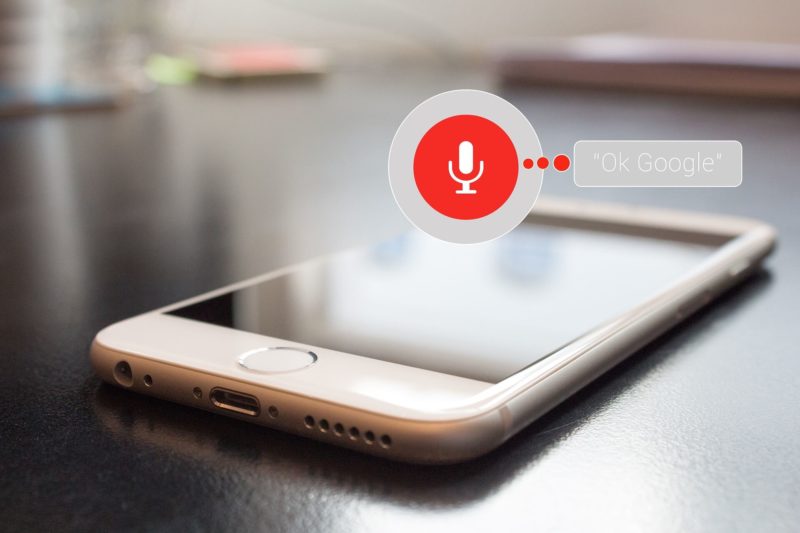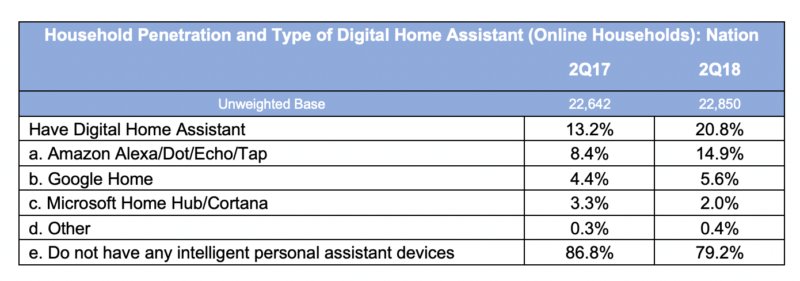
Ninety percent of smartphone owners use their device’s virtual assistant. That’s according to a new survey (n=1,000) and report from reputation management and local SEO provider Chatmeter.
Forty percent seeking local information. The survey also finds that roughly 40 percent of consumers “use voice search to ask for directions, an address or business hours for a nearby location” and just over one quarter (27 percent) of respondents say their “number one use for their voice device is to find a local restaurant, shop or business.”
Mobile device usage for local search is well established. On yesterday’s Google earnings call, for example, CEO Sundar Pichai said, “[L]ocal mobile searches are growing faster than just mobile searches overall, and have increased by almost 50 percent in the last year.”
Driving directions after a local-voice search. After conducting a voice-based local search on a smartphone, nearly 90 percent (88 percent) of these users say they “are likely to use driving directions.” This is consistent with the “need it now” and “near me” paradigms of mobile search.
The report generally neglects to distinguish between voice search on smartphones and use of smart speakers in most instances. However it does assert that “61 of consumers own a smart speaker – 51 percent of them use it daily and 29 percent use it at least once a week.” If we use a base of roughly 250 million adults, that would mean 152 million people in the U.S. currently own smart speakers. That number is much higher than other estimates and doesn’t ring true.

Source: Kantar TNS (2018)
A recent survey by Kantar TNS with a significantly larger sample found roughly 21 percent of U.S. households had at least one smart speaker. There are roughly 117 households in the United States, which would mean about 25 million smart speakers (if there were only one per household). But many households have multiple units.
In absolute terms, then, smart speaker penetration is likely somewhere between the Kantar number and the Chatmeter 61 percent penetration figure.
What matters to marketers. Smart speakers and smartphones need to be treated as different categories when it comes to user behavior. Smart speakers have yet to generate meaningful search query volume. Of course, consumer behavior will evolve over time and eventually smart speakers will drive discovery and commerce.
By contrast, smartphones are now the primary internet access device in people’s lives. As voice gains a larger share of mobile search and single answer responses (i.e., generated by Google Assistant) become more prevalent, marketers will need to optimize for snippets, offer more structured data and create more content to respond to natural language queries.
Contributing authors are invited to create content for Search Engine Land and are chosen for their expertise and contribution to the search community. Our contributors work under the oversight of the editorial staff and contributions are checked for quality and relevance to our readers. The opinions they express are their own.



